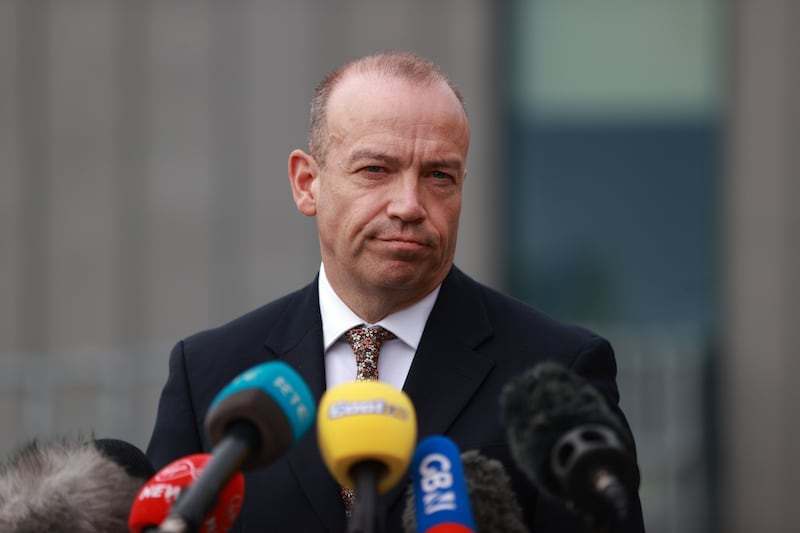A former Sinn Féin minister has said the Irish government was left with no choice but to challenge the British government’s controversial legacy plans.
Conor Murphy’s remarks came after Chris Heaton-Harris wrote to Foreign Affairs Minister Micheál Martin questioning why the Dublin government was challenging British legacy legislation in the European Court of Human Rights.
Taoiseach Leo Varadkar said in December that his administration was left with “no option” but to mount a challenge.
He said the “strong” legal advice was that the Northern Ireland Troubles (Legacy and Reconciliation) Act 2023 breached the UN Convention on Human Rights.
In the correspondence issued by British ambassador to Ireland Paul Johnston, the secretary of state challenged Dublin to set out its own record on tackling legacy issues.
Mr Heaton-Harris asked Mr Martin to list the number of prosecutions mounted in the Irish state since 1998 related to Troubles incidents.

The Northern Ireland Office (NIO) confirmed to the PA news agency that a letter had been issued formally registering “profound regret” at the interstate case.
The letter criticises the timing of the Irish government decision, describing it as coming at a “delicate time” as efforts continue to restore power-sharing.
DUP leader Sir Jeffrey Donaldson backed Mr Heaton-Harris’s challenge to the Irish government on its past record, while maintaining his party’s opposition to the contentious Westminster legacy plan.
Mr Murphy said he wasn’t surprised that the British government would “fight and criticise others” while its legislation faced universal opposition in Ireland.
He said the British government’s approach to legacy has “been about satisfying its own electoral interests” and “motivated by its own backbenchers and their desire to protect British crown forces who were involved in all sorts of activities here over the course of the conflict”.
“The idea that they would continue to fight and criticise others when they are in the face of all opposition from all of the parties here, all of the victims’ organisations and from the Irish government, doesn’t surprise me… They were never intent on satisfying the needs of victims here, they were intent on satisfying the requirements of their own backbenchers in relation to protection of their own personnel,” he told the BBC.
He said the Irish government was left with no alternative but to take a case.
Sir Jeffrey said the Irish government’s “double standards” on legacy “need to be challenged”.
“I agree with the secretary of state that the double standards of the Irish government on this issue need to be challenged, and, whilst we opposed what the UK government are doing and continue to oppose this amnesty that they brought forward in their legacy proposals, we see the same approach taken by the Irish government, indeed over many years, and, as the secretary of state has pointed out, there have been no prosecutions by the Irish government, no attempt to prosecute those who were involved in terrorist activity in their jurisdiction,” he said.
Mr Martin said he was aware of the letter and would respond in due course.


